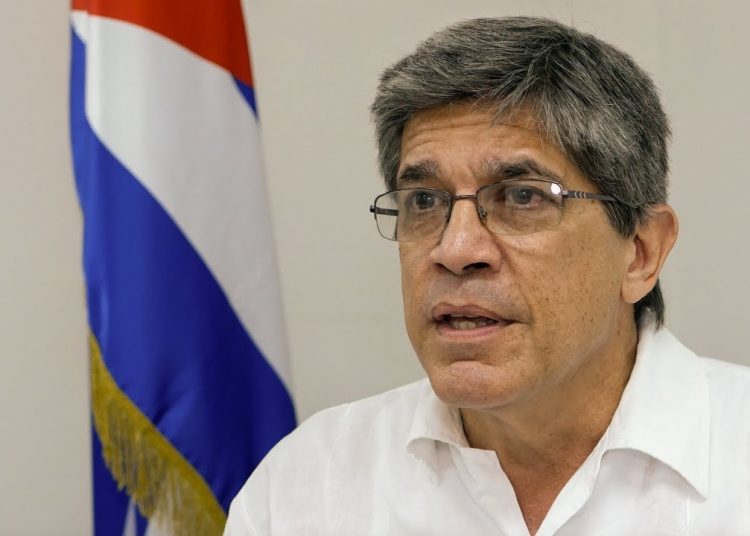The Director General for the United States of the Ministry of Foreign Affairs (MINREX), Carlos Fernández de Cossío, intervened this Monday night in the prime-time broadcast of the National Television News (NTV) to reiterate the official position in relation to the San Isidro events and the involvement of the U.S. government.
Two days earlier, on November 28, the MINREX had called U.S. Charge d’Affaires Timothy Zúñiga-Brown to let him know that Cuba did not allow “the United States, or any state, to interfere in the internal affairs of the country.” He was also asked to reiterate that same message to the Department of State. “The officials do not act on their own initiative,” Fernández de Cossío told the NTV, “they receive instructions from their government.”
“We summoned him to the MINREX,” he said, “because we had the need to remind him that U.S. diplomats must behave and not meddle in internal affairs. The Vienna Convention establishes very clearly that the diplomatic representative…is obliged to respect the laws and regulations of the country…and not to interfere in the internal affairs of a country.”
He also said that Zúñiga-Brown had gone three times to San Isidro, a place where the Embassy knew that a political and social provocation was taking place with the purpose of destabilization. And that he had done it to personally support those who were flouting health regulations against the COVID-19 pandemic.
He described the events as “the San Isidro farse.” They are, he said, “to some extent a product of the United States’ subversive activity in Cuba.” He specified that the charge d’affaires also called its protagonists “colleagues,” but that there is a relationship of dependency: on the island, he stressed, “there have always been people willing to submit or subordinate themselves to those who pay them” for undertaking activities against the government. The Federal Bureau of Investigation (FBI), he said, “knows who are the individuals who give the money to pay for these services,” but that “the United States is a government that is complicit and tolerant of terrorist activities directed from its territory against Cuba.”
Finally, he highlighted that these events describe a sequence in which, first, social networks intervene, magnifying everything; afterwards, what is sought is that “the supposed great incident or crisis is recognized by the mainstream press” and that, finally, “governments or international institutions are contacted to recognize it.”
During the interview, images of the presence and activity of the charge d’affaires in the San Isidro neighborhood were shown.










